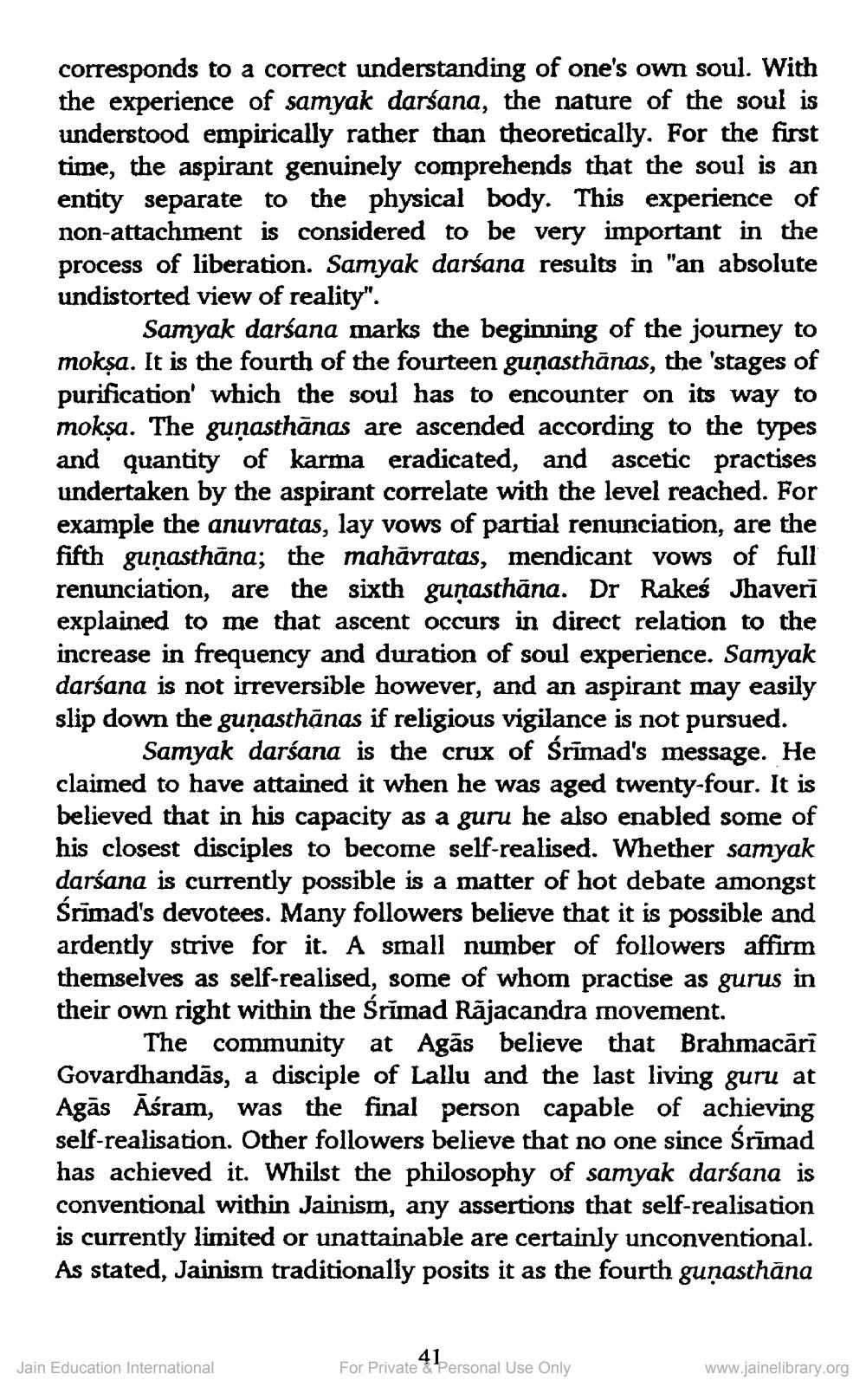________________
corresponds to a correct understanding of one's own soul. With the experience of samyak darśana, the nature of the soul is understood empirically rather than theoretically. For the first time, the aspirant genuinely comprehends that the soul is an entity separate to the physical body. This experience of non-attachment is considered to be very important in the process of liberation. Samyak darśana results in "an absolute undistorted view of reality".
Samyak darśana marks the beginning of the journey to mokşa. It is the fourth of the fourteen gurasthānas, the 'stages of purification which the soul has to encounter on its way to mokṣa. The gunasthānas are ascended according to the types and quantity of karma eradicated, and ascetic practises undertaken by the aspirant correlate with the level reached. For example the anuvratas, lay vows of partial renunciation, are the fifth gumasthāna; the mahāvratas, mendicant vows of full renunciation, are the sixth gunasthāna. Dr Rakeś Jhaverī explained to me that ascent occurs in direct relation to the increase in frequency and duration of soul experience. Samyak darśana is not irreversible however, and an aspirant may easily slip down the guņasthānas if religious vigilance is not pursued.
Samyak darśana is the crux of śrīmad's message. He claimed to have attained it when he was aged twenty-four. It is believed that in his capacity as a guru he also enabled some of his closest disciples to become self-realised. Whether samyak darśana is currently possible is a matter of hot debate amongst Śrīmad's devotees. Many followers believe that it is possible and ardently strive for it. A small number of followers affirm themselves as self-realised, some of whom practise as gurus in their own right within the Srimad Rājacandra movement.
The community at Agās believe that Brahmacāri Govardhandās, a disciple of Lallu and the last living guru at Agās Āśram, was the final person capable of achieving self-realisation. Other followers believe that no one since śrīmad has achieved it. Whilst the philosophy of samyak darśana is conventional within Jainism, any assertions that self-realisation is currently limited or unattainable are certainly unconventional. As stated, Jainism traditionally posits it as the fourth gunasthāna
Jain Education International
For Private 4 Personal Use Only
www.jainelibrary.org




